This past weekend Dave Chappelle devoted a 15-minute monologue on "Saturday Night Live" to Kanye "Ye" West's recent troubles and made more than a few biting remarks about "The Jews."
"These individuals without any power or support from established Black institutions have become the present face of Black antisemitism."
One one hand, the stand-up routine appeared to take Ye to task for antisemitic remarks that caused longtime sponsor Adidas to drop the rapper. On the other hand, Chappelle backed the impression that Jewish people control the media and showbiz. "I've been to Hollywood – it's a lot of Jews," he joked. "Like, a lot."
The most head-scratching moment, however, occurred when Chappelle declared, "I know the Jewish people have been through some terrible things all over the world, but you can't blame that on Black Americans."
In ways, that comment exemplifies the lack of understanding of the nuanced and complicated discourse about the ongoing antisemitism displayed by Black individuals, especially leaders and celebrities. It seems as if every few months the country is gripped by what might be called a "Blacks and Jews" controversy.
Since October, pundits, journalists, clerics, and associated culture warriors have been tracking the fallout from antisemitic remarks made by West, and a related, but more complicated, controversy involving Kyrie Irving. Before that, there was a storm about Whoopi Goldberg. And before that Nick Cannon. And before that DeSean Jackson, and on and on it goes back to the mid 1960s when these two storied Civil Rights allies endured a highly-publicized and long-in-the-making rift.
Professor Terrence L. Johnson (Harvard Divinity) and Professor Jacques Berlinerblau (Georgetown) have spent years studying, teaching and writing together about the fascinating, weirdly framed, and widely misunderstood subject of "Blacks and Jews" (even that term, they point out in their research, is a misnomer) all of which culminated in their recent book "Blacks and Jews in America: An Invitation to Dialogue."
They find that the best way to make sense of these controversies is to engage in honest conversation, which they continue below as they contemplate recent developments.
Jacques Berlinerblau: Terrence, over the past few weeks the worlds of commerce, art, sports and politics have all been roiled by controversies concerning antisemitic remarks by rapper Kanye West and tweets by Brooklyn Nets star Kyrie Irving. And just this weekend comedian Dave Chappelle raised the temperature even more in a controversial "SNL" monologue. Before we analyze the Kanye and Kyrie episodes within the context of the class we taught for five years at Georgetown University (i.e.,"Blacks and Jews in America") let's review the current episode.
Terrence L. Johnson: Just as we contextualize debates in our class, we must do so with these controversies. These individuals without any power or support from established Black institutions have become the present face of Black antisemitism. Let's start with Ye. His offense is straightforward. Though I also need to mention his provocations against Blacks. Ye posted on social media the propaganda that George Floyd died from fentanyl, not because former police officer Derek Chauvin placed his knee on his neck for nine minutes. As for Jews, he has a history there. He repeated antisemitic tropes of an existing "undergroud" Jewish mafia. He claimed Jews control the record industry and financially abuse Black artists. For good measure he vowed to go "death con 3" on them, whatever that means.
Berlinerblau: I don't know what it means either, but it doesn't sound good. What about Kyrie Irving?
"I am not sure that anyone, even an NBA commissioner, has the power to consign Irving, or anyone, to theological penance."
Johnson: Kyrie Irving's situation is complicated and, frankly, I don't fully understand it. Is his suspension from the Brooklyn Nets the result of posting on social media a link to a movie characterized as containing antisemitic tropes? Was he suspended for suggesting that the original Jews were Black? Remember, he had to apologize for asserting that the Earth is flat. And, now we are seriously debating his opinion of Africa and Judaism?
Berlinerblau: What do you think is going on with him?
Johnson: He seems to be facing an existential crisis – searching for a Black historical narrative that predates the transatlantic slave trade. That narrative brings him to Judaism. Instead of shaming and suspending him, why didn't Adam Silver, the commissioner of the NBA, send Irving to a nearby rabbinical school or the famed Union Theological Seminary in upper Manhattan to help him grapple with his religious questions?
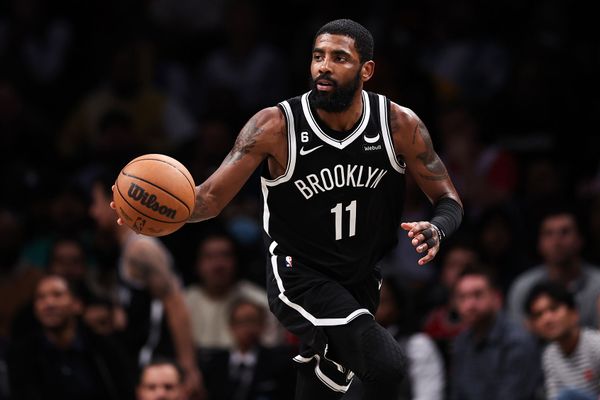 Kyrie Irving #11 of the Brooklyn Nets brings the ball up the court during the fourth quarter of the game against the Chicago Bulls at Barclays Center on November 01, 2022 in New York City. (Dustin Satloff/Getty Images)Berlinerblau: It's an interesting idea. Maybe Hebrew Union College in Greenwich Village or Jewish Theological Seminary in Morningside Heights would have welcomed him. Wouldn't it be cool if universities were seen as go-to places for contrition and national reconciliation? Then again, I am not sure that anyone, even an NBA commissioner, has the power to consign Irving, or anyone, to theological penance. In any case, upon hearing these remarks and the ensuing fallout – including Irving's exceedingly belated apology – we both recognize certain patterns that are repeating themselves. In our recent book we referred to it as "the Loop."
Kyrie Irving #11 of the Brooklyn Nets brings the ball up the court during the fourth quarter of the game against the Chicago Bulls at Barclays Center on November 01, 2022 in New York City. (Dustin Satloff/Getty Images)Berlinerblau: It's an interesting idea. Maybe Hebrew Union College in Greenwich Village or Jewish Theological Seminary in Morningside Heights would have welcomed him. Wouldn't it be cool if universities were seen as go-to places for contrition and national reconciliation? Then again, I am not sure that anyone, even an NBA commissioner, has the power to consign Irving, or anyone, to theological penance. In any case, upon hearing these remarks and the ensuing fallout – including Irving's exceedingly belated apology – we both recognize certain patterns that are repeating themselves. In our recent book we referred to it as "the Loop."
Johnson: The Loop is a media vortex, toxically masculine, where white Jewish men berate, discipline and contain Black male entertainers, clerics, athletes and a handful of academics for invoking pejorative antisemitic slurs and diatribes (see for example Minister Louis Farrakhan, Jesse Jackson, Leonard Jeffries, DeSean Jackson, Nick Cannon, etc). The backlash can be especially strong when Blacks embrace Judaism as an African-derived religious tradition, as both Ye and Kyrie did. Speaking through institutional bullhorns like the Anti-Defamation League, white Jewish men assemble their multiracial allies, mostly elite Black male leaders, to denounce the speech or slur. An apology is demanded, and begrudgingly offered. This is followed by swift public shaming and severe financial punishment. What would you add to our description of The Loop?
Berlinerblau: I'd re-sequence it a bit. An anti-Semitic diatribe, usually from a non-Jewish Black male galvanizes the white Jewish community. The Major Jewish Organizations then ask Black organizations and individuals to denounce the speaker. Many in the non-Jewish Black community take umbrage at being asked to do that (Is Joe Biden asked to denounce racist and antisemitic statements by fellow white guy Donald Trump?). So, what started as an unfortunate or dumb statement made by one Black individual, triggers a collective white Jewish reaction which, in turn, infuriates Blacks. When we taught the history of The Loop to our undergraduates we lingered on Minister Louis Farrakhan.
Johnson: The historic tensions brewing from Minister Farrahkan's fierce opposition to the Loop animate our classroom discussions. Black students were generally unfamiliar with the historical backdrop, unlike white Jews for whom he was the face of antisemitism in America.
Berlinerblau: Yet we were both surprised to learn that few of our students even knew that context, the fact that Blacks and Jews had this lengthy, complex relationship.
Johnson: The cursory understanding of the historical relationships between Blacks and Jews is a function of an even broader problem which we'll discuss below about where students are and aren't getting their knowledge from. Anyway, we're back in The Loop again with Kyrie and Ye. What's the same, and what's different about this Loop?
Berlinerblau: Let's start with similarities. These men are given to a conception of Jews as powerful, almost omnipotent, and deeply hostile to the Black community.
"The Loop is a media vortex, toxically masculine, where white Jewish men berate, discipline and contain Black male entertainers, clerics, athletes and a handful of academics for invoking pejorative antisemitic slurs and diatribes."
Johnson: The hostility is, in part, the fallout from previous Loops. And what we hear is the pain and frustration of men being treated like children, without any means to defend their interpretations of institutional power and authority within their respective industries.
That being said, I've been conducting an unscientific survey about how gender intersects with this controversy. In random social media posts I have observed, Black women seem to frame Ye's comments within the context of mental illness, which he first discussed publicly after he canceled his 2016 Saint Pablo Tour and was hospitalized.
Berlinerblau: And Black men?
Johnson: Black men, however, link the response to both Ye and Irving as yet another example of "shutting down the Black man." The logic is bolstered at times by conspiracy theories of white Jewish control of the media industry. One line of thinking goes like this: "Jews" destroyed Michael Jackson in 1995 when he decried Jewish ownership of music. To be sure, Black male entertainers and athletes encounter white Jewish men in positions of power disproportionately more than the average Black person – an asymmetrical relationship worth noting.
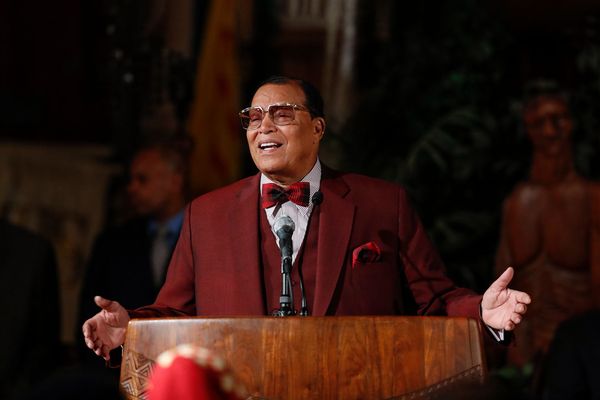 Nation of Islam leader Louis Farrakhan speaks about his ousting from Facebook at St. Sabina Catholic Church in Chicago, Illionis on May 9, 2019. (KAMIL KRZACZYNSKI/AFP via Getty Images)
Nation of Islam leader Louis Farrakhan speaks about his ousting from Facebook at St. Sabina Catholic Church in Chicago, Illionis on May 9, 2019. (KAMIL KRZACZYNSKI/AFP via Getty Images)
Berlinerblau: Jews are perceived by certain Blacks as being in control. As we noted above, after an antisemitic remark is made, Jewish communal leaders usually demand that their Black counterparts denounce the culprit.
Johnson: Did you see that occurring this time?
Berlinerblau: No! I don't know about Irving, but, best I can tell, many Black folks have been frustrated with Ye. In other words, few needed prompting to denounce his threats against Jews. I think of him sporting that White Lives Matters shirt. When he went off on Jews (again) many in the non-Jewish Black community were already so disillusioned by him that they were like, "Hold my beer." It's ironic: his antisemitism may have prompted the media to finally recognize and address longstanding frustrations with Ye within the Black community.
Johnson: Communal reaction is a big part of any Loop and a huge part of this story, as is the role of the media. Lisa Respers France exposed the visible but unspoken double standards in public responses to Ye's comments. Ye is punished for antisemitic slurs, but when he posts anti-Black racist rants claiming "racism is a dated concept" and African enslavement was a "choice," the media are silent. Yes, Ye frustrated most progressives and Democrats with his speculative comments about running for president. I don't recall loud cries from white Jews to censure him for attempting to sway the presidential elections by meeting our racist-and- misogynist-in-chief?
Berlinerblau: Hmm. I see what you are saying. But that might have been a case of White Jewish Democrats feeling it wouldn't be appropriate to attack an African-American artist about issues not pertaining to Judaism. They were staying in their lane. I think those Jews felt more comfortable calling out Ben Shapiro or Stephen Miller (which they did).
"Having 31.8 million followers on Twitter, as Ye did – that's a tangible form of power nowadays."
Johnson: Excellent point, my friend! This is the problem – we don't value Black lives enough to face the consequences of defending them. If we valued all lives in material ways, white folks could easily criticize Black artists and politicians without fear of retribution or rebuke. Why? Because justice demands accountability. This failure represents the limits of liberalism. American liberalism brackets race in public discourse, so many whites liberals are apprehensive about discussing race in the public sphere, even though the liberalism they praise and practice is embedded with racial categories and anti-Blackness. This silence sustains racial liberalism and gives individuals like Kyrie and Ye an outsized platform in a white media ecosystem that carefully chooses when to talk about race, who to talk about, and who to invite as "experts." We must understand these structural forces at play. 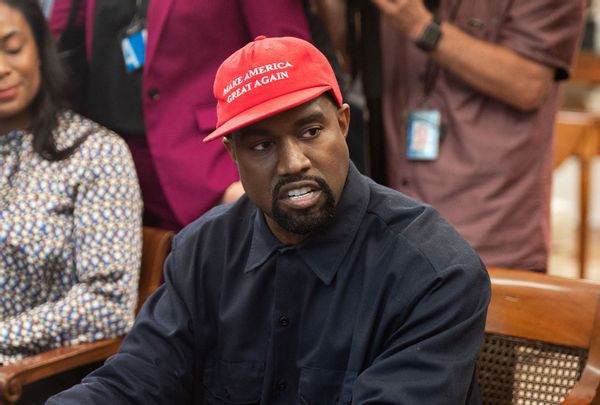 Rapper Kanye West speaks during his meeting with US President Donald Trump in the Oval Office of the White House in Washington, DC, on October 11, 2018. (SAUL LOEB/AFP via Getty Images)
Rapper Kanye West speaks during his meeting with US President Donald Trump in the Oval Office of the White House in Washington, DC, on October 11, 2018. (SAUL LOEB/AFP via Getty Images)
Let's talk a little about social media and its relation to what we're seeing in the classroom. Why did the media parse the comments as antisemitic without lingering on the mental illness angle?
Berlinerblau: I think in this case, "the media" is only partly to blame. I mean one of the things that the media formerly owned was the ability to radiate information far and wide. In the Digital Era – which is a real thing to me, like the Pleistocene or the Bronze Age – one needn't be in the media anymore to accomplish that. Herein lies another peculiarity of this Loop. Back in 1984 when Jesse Jackson made his "Hymie Town" remark, it only came to the public's attention because one Washington Post reporter – who was Black by the way – reported it. The media did the radiation. Ye, by contrast, is a skilled content creator with his own mighty tools of propagation. He can disseminate his ideas through his own social media channels –and if he so desires with an assist from Fox News. In this case, the media didn't start the blaze. It certainly poured gas on it. Though you have a point, this could have been framed as a "mental illness" story.
Johnson: Why do you think Ye and Irving are flooding social media content at this moment when everyone I know is consumed by the midterm elections, voter suppression and state violence against Blacks?
"Ye is welding together two forms of antisemitism."
Berlinerblau: For a couple of reasons. Ye and Irving and Dave Chappelle too are really famous people – people whose fame is both a cause and effect of social media's ascendancy in our lives. I totally hear you on "institutional power," and how Jews have it and Blacks don't in the United States. But there are other types of power, especially in an era of digital media. Having 31.8 million followers on Twitter, as Ye did – that's a tangible form of power nowadays.
Johnson: So what is the Jewish community fearful of?
Berlinerblau: The Jewish community, like the Black community, is facing real and terrifying threats. The most lethal manifestations for both are coming from White Christian Nationalists. So here comes an African-American icon, who, somehow, is aligned with Trump, Tucker Carlson, etc. and also depicts Jews as imposters because he believes Blacks are the true Jews. The latter is an idea which emerges from African-American quarters. Ye is welding together two forms of antisemitism that emerge from opposed social locations. Ye's like the Unified Field Theory or dialectical synthesis of antisemitism. He's amalgamating very different types of Judeophobia and it's deeply worrisome. What do you think of the Jewish community's response to Ye?
Johnson: I think Jewish communities are overplaying their hand. And back to your point: do social media followers translate into material power for any Black entertainer? Influence, sure. Power, no! Social media is an exploitative platform manipulated by companies for monetary gain. I don't know any serious Black intellectual, artist, or activist responding to Ye's absurd claims. Instead, many are frozen in disbelief. A Chicago native and son of a college professor involved in his community's destruction is a sign of self-destruction, political ignorance and bad faith. How else do we explain his actions: denying African enslavement, dismissing anti-Black racism, and promoting White Lives Matter in the context of the Trump presidency?
Berlinerblau: Social media followers, old friend, can be awfully dangerous. You're right though: when it comes to antisemitism we Jews often overplay our hand. Remember the Whoopi Goldberg dust-up? You and I were puzzled that the ADL would make such a big deal about that. With Ye, however, I think the ADL is absolutely right and continues its pattern of doing important work. You and I once concurred that Jews and Blacks overplay their hand. We're so touchy – but who can blame us given what we've been through? So, as regards Ye, you're saying this man needs help, not censure?
Johnson: Correct.
Berlinerblau: What about Irving. What do you think is something that people are missing about that Loop?
"It is safe to suggest that many working-class brothers in particular believe Jesus was Black, and therefore, so are historical Jews."
Johnson: As we noted above, the Kyrie Irving debacle is different from Ye's relentless slurs and attacks. Why? Irving's problem/situation conveys a broader concern facing the nation and higher education in particular: distinguishing facts from falsehoods, myth from truth. The Pew Foundation reported in 2020 that 25% of Americans received their news from YouTube. This is astonishing. But not shocking. YouTube is likely the first and last place where Americans "discover" facts about a range of topics. Books and libraries were the cornerstones of Black freedom struggles. From pulpits to street corners in nearly every "hood" across the nation, Black folks from all walks of life celebrated the importance of reading and acquiring "book knowledge" for our emancipation. YouTube is an excellent complement to reading but it should not replace research and the archives.
Berlinerblau: What else are people missing?
Johnson: The second major issue is Irving's assertion that Judaism is "an African heritage that is also belonging to the people [i.e., Blacks]." This seems to be the source of the Jewish community's fury – and, ironically, a central point routinely debated when the topic of Blacks and Jews surfaces among Black men at the barbershops I have frequented throughout my adult life. It is safe to suggest that many working-class brothers in particular believe Jesus was Black, and therefore, so are historical Jews.
Want a daily wrap-up of all the news and commentary Salon has to offer? Subscribe to our morning newsletter, Crash Course.
Berlinerblau: Some Jews, as usually defined, have no problem with the African heritage argument, especially Sephardic Jews. It's the idea of Jews as imposters which irks them. But back to your observation: when a student adduces a YouTube video, in terms of professorial ethics, how do you respond?
Johnson: During my time at Morehouse professors and classmates exchanged bibliographies. Now when I ask students to support some of their claims they always send me a link to an online lecture! So I respond by handing the student a bibliography! And I tell him or her that online lectures cannot substitute reading and research.
For the recent converts to the Hebrew Israelite tradition I ask a series of questions: Is the King James translation of the Bible an adequate source? Do you need to know the original language to determine the veracity of scripture translated in English? If the Bible was distorted to justify African enslavement, which I assume you reject, do you ever question the limits of scriptural interpretations to understand the state of affairs today? I follow the same course of action we take in the classroom – raise piercing questions in a dialogical framework to challenge the presumption that – in this case – YouTube is a legitimate source on its own.
Berlinerblau: Yup! Students are doing their own "research" – and they're not doing it through GoogleScholar! Kyrie Irving has directed people to a video associated with Hebrew Israelites. You've taught students in that tradition, right?
Johnson: Students I know who identify as Hebrew Israelites share common characteristics: mostly Black men, many of whom searched in the assigned readings answers to existential questions about "manhood" and God. Discovering "the truth" or the singular source of Black death and suffering animates our discussions. This meandering pathway towards "knowledge," which was a rite of passage when I was an undergraduate at Morehouse College, is nearly always framed in masculinist terms, a desire to prove to oneself and the world the "humanity" of Black men through material power.
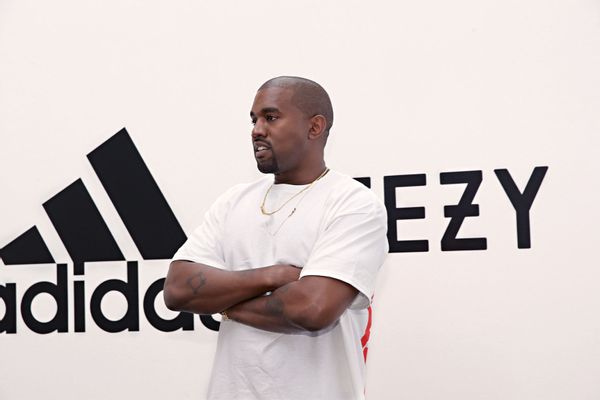 Kanye West at Milk Studios on June 28, 2016 in Hollywood, California. (Jonathan Leibson/Getty Images for ADIDAS)
Kanye West at Milk Studios on June 28, 2016 in Hollywood, California. (Jonathan Leibson/Getty Images for ADIDAS)
Berlinerblau: You raise an issue we in the University are not really thinking about enough. Where our students' knowledge is coming from and how bizarre, tedious, and antiquated our mechanisms of knowledge production appear to them. So Terrence in the Digital Era, with all this hatred and rancor coming at us from all directions, and with democracy itself spinning and wobbling like an expiring top, what is our job as educators?
Johnson: Our job is to challenge uncritically examined beliefs and values in, for instance, meritocracy, access to voting, and gender. I don't care anything about Kyrie Irving's views on "Black Judaism" or Ye's tirades on social media. If the media and public officials had enduring relationships with Black institutions and Black activists, I don't think anyone would respond to Irving or Ye. Why? We would easily recognize that individuals do not represent a wide-ranging community and swiftly dismiss the individual's antics. Unfortunately, exceptional Negroes must account for all "Black" crazy talk because, alas, we are fundamentally an inferior group in the eyes of most Americans, never viewed as individuals with competing claims and interests. What do you see as our responsibility, Jacques?
Berlinerblau: In the classroom, we need to be honest and independent and fiercely critical. We have to be able to say what we believe is true on the basis of the research we conduct. And, Terrence, we are both part of that grimly dwindling cohort of academics who are tenured and thus have full freedom protections. It's our obligation to "use" it (i.e., our tenure) even as we are losing it.
Johnson: Black and white Jews should be angry with Ye and challenge the claims in the infamous Amazon movie. Where, by the way, is the public's rebuke of Amazon? It's profiting from alleged antisemitic tropes on its platform. Rhetorical assaults can lead to violence against Jews. Period.
Berlinerblau: Yup! One genuine affinity between what is called "Blacks and Jews" is predicated on the fact that we all get that. No explanations necessary. That's a real commonality. Our communities intimately comprehend the "word-and-thought-defying" power of words.
The authors wish to thank Megan Wee, Phil Scholer and Kellyn Lewis for their editorial assistance.
Read more
about this topic
Hanh could you please add that the authors wish to thank Megan Wee, Phil Scholer and Kellyn Lewis for their editorial assistance


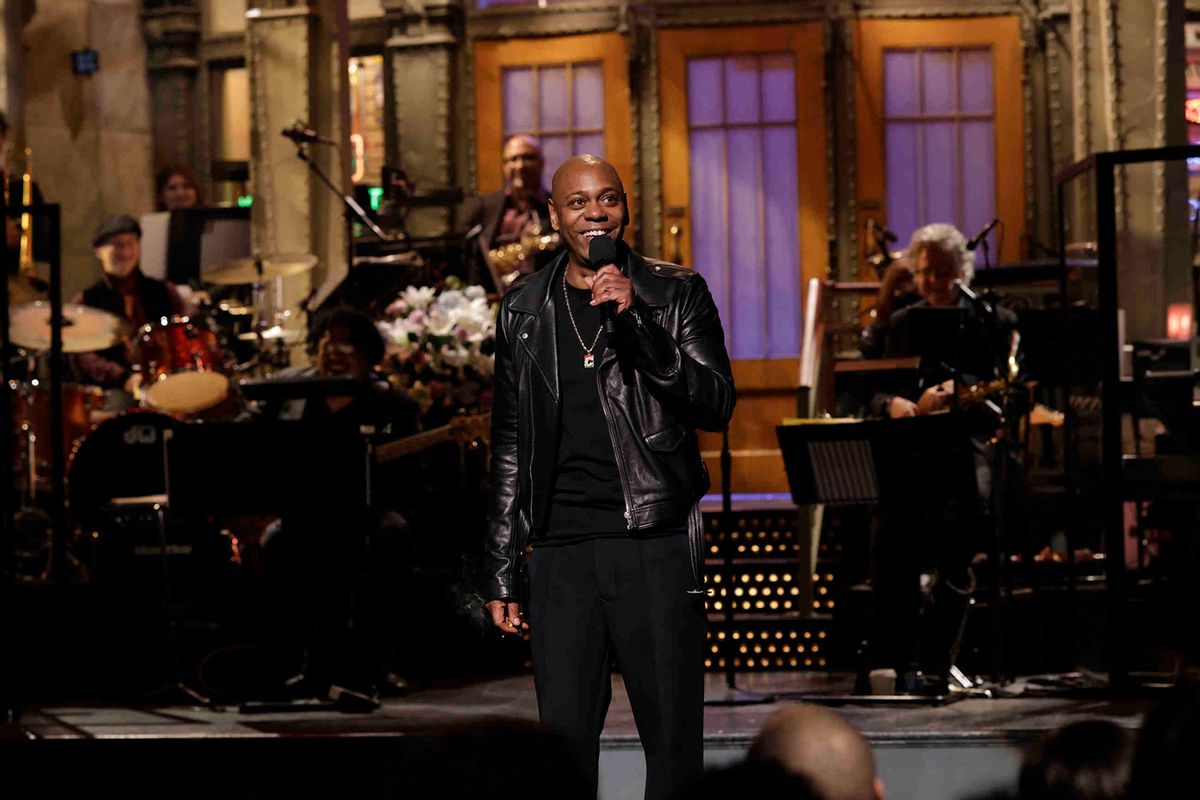
Shares